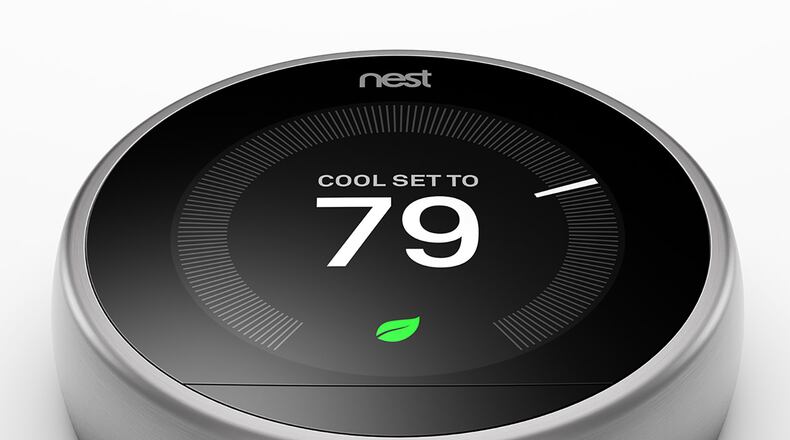RELATED: Hamilton program offers energy-efficient light bulbs at deep discounts
“We just launched a new rebate offering” for the thermostats, said Steven Nyeste, a spokesman for Columbus-based Efficiency Smart. “It’s part of the residential product rebates that we offer to Hamilton utilities customers. Those are wifi-enabled, and you can schedule them around when you’re in your home.”
Eight models by three manufacturers — NEST, Ecobee and Honeywell — are part of the program. They generally range in price from about $150 to $250, but are helpful to property owners because they can lower energy costs over time.
Advanced thermostats can trim power use by automatically adjusting the temperature based on daily weather conditions, as well as residents’ heating/cooling needs and their schedules. Residents can use computers or smartphones to remotely monitor and adjust their home’s temperatures.
The program also offers discounts for other household products, including certain heat pump water heaters ($250); swimming-pool pumps ($175); furnace fans ($100);clothes washers ($50); clothes dryers ($50); refrigerators ($50); dehumidifiers ($20); ceiling fans with lights ($15); advanced power strips ($10 or $15, depending on the size).
For a list of brands and models that qualify, as well as the forms needed to request the rebates, go to www.efficiencysmart.org. The program checks with the city’s utilities to verify that people seeking the rebates are Hamilton customers.
MORE: Hamilton goes greener, saves electric customers some green
Under the three-year Efficiency Smart contract, the program guarantees Hamilton will reduce power needs by at least 9,000 megawatt hours annually. The savings to the city and its electric customers will last about 10-15 years, because that’s the estimated lifetime of the more energy-efficient products.
The city pays $793,000 per year under the agreement.
Michael Gurr, Hamilton’s utilities field services superintendent,said the thermostats can be a good decision to reduce heating costs.
“The thermostat itself is a programmable device that can assist with reducing heating costs when the occupants aren’t actually at the property,” Gurr said. “Reducing your actual heat would save with consumption of energy during the timeframe that no one’s there, and so therefore, on a month-to-month basis with your utility bills, it would save money in the long run for the homeowner.”
About the Author
